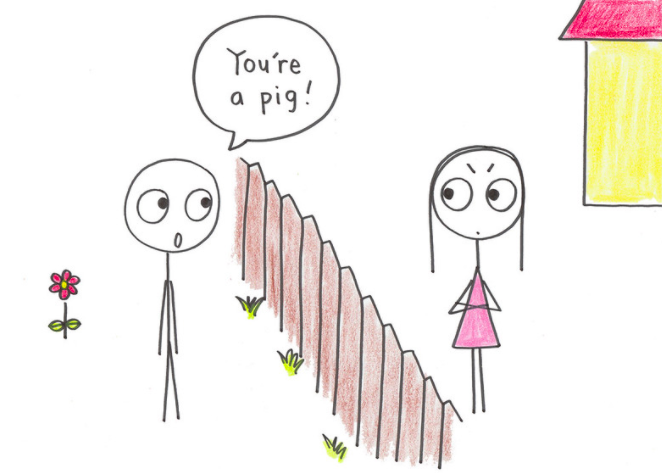“Good Fences make Good Neighbours.”
I’m imagining those who know me well enough scratching their head in bemusement about the concept of me writing about boundaries.
For those who don’t know me, imagine a nun teaching a sex education class, or an Amish lecturing on electrical engineering, and you’ll be in the ballpark. Stick with me, you may be pleasantly surprised by the end!
Now the saying in the title “Good fences make good neighbours” on the surface is fairly simplistic. It’s saying that physical barriers or boundaries make it easier for neighbours to live harmoniously right? We’ve cracked it. Time to wind up this entry early and go off to the watering or caffeinating hole of choice.
I think there’s more to it than that (now there’s a shock!). What you have with neighbours is basically a shared understanding of how one should or shouldn’t interact with them, which is supported by the typical physical situation (each neighbour has their own enclosed “house” with a clear common understanding of what surrounding area belongs to whom).
That all sounds theoretical, so as per usual, it’s easier to explain with examples. Let’s say you’re in your front yard, and your next-door neighbours come out of their front door and are heading toward their car parked in the driveway. Just from that, you know that it’s socially acceptable to have a quick conversation with them, but not a long one so you don’t delay them from wherever they are going out to.
Or, imagine two neighbours are having a conversation over the back fence, “Home Improvement” style (yes, I’m old). The conversation can be as long or as short as each neighbour is comfortable with. Even if one neighbour says goodbye in some fashion, and starts working on something or another still in proximity to the other neighbour, no one is offended. The social convention of the conversation stopping when either neighbour decides it is trumps the fact that they both could still hear each other and continue the conversation.
Finally, let’s say the Wolf family decide to invite the neighbouring Hood family over for a meal. This does not mean that the Hoods can then just drop in on the Wolf household whenever they please afterward. It also does not mean that the Wolfs (Wolves?) can just rock up to the Hoods place, either. About the only thing there is a low-level expectation of reciprocity; in this case, the Hoods inviting the Wolfs over for a meal at some future occasion. The only way that a “drop-in whenever you like” situation happens is when the Wolfs or Hoods explicitly tell the other family they are welcome to drop in any time (barring a legitimate emergency, of course).
I could go on, but in general, to me, it appears that in neighbour-type relationships, it is both easier for the boundary “setter” to set boundaries to allow them to feel comfortable and easier for the boundary “keeper” to unambiguously know where the boundaries are and thus, respect them.
Unfortunately, other relationships are often more complex. I believe that both setting boundaries for other people to respect, and respecting other’s boundaries are two separate challenges. From my observation, any given person is usually decidedly better at one than the other. I’d thoroughly recommend practising whichever one you feel you are weaker at.
Finally, solid boundaries are one of the first lines of defence against inbound relationship toxicity, and watching carefully how someone you are getting to know either respects or disregards the boundaries of you and others can either be a good sign or a distinct red flag.
I’m not even pretending to be an authority on any of this, so any ideas, thoughts, or insights gratefully received, especially around learning to set boundaries for others!
Good luck out there!
~


 Share on bsky
Share on bsky





Read 0 comments and reply